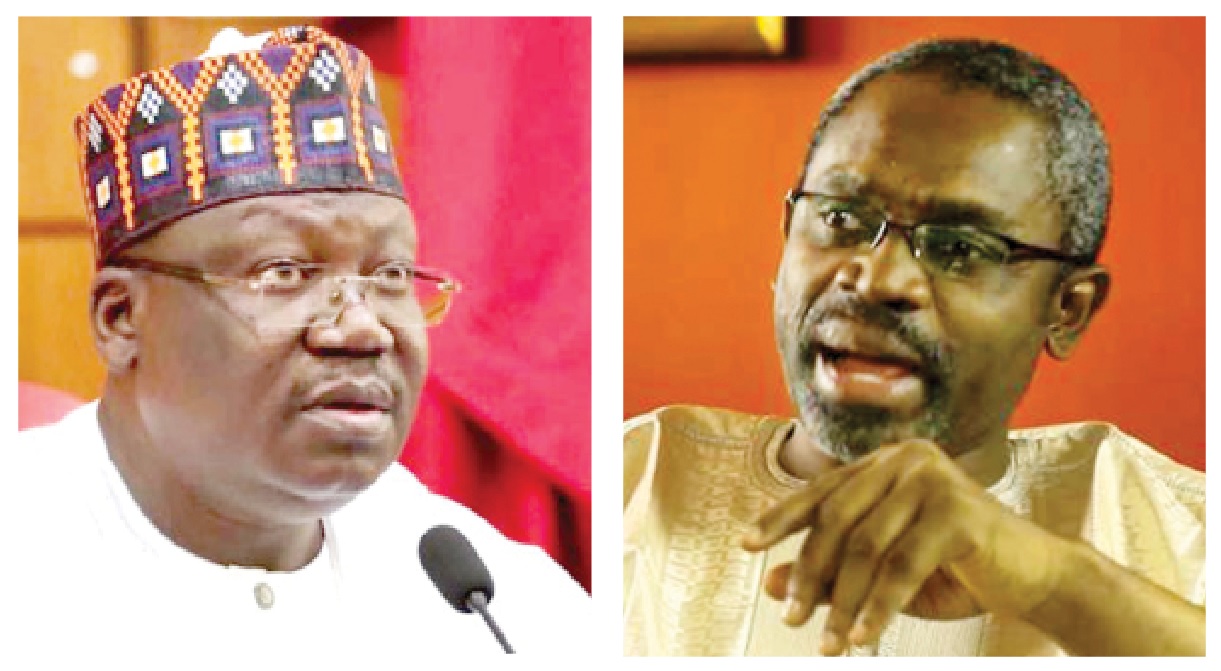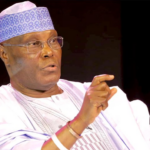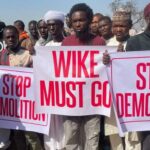The Ninth National Assembly, in September and October, 2019, rolled out an ambitious legislative agenda, a framework that will guide its operations in the next four years.
In the agenda, the Senate resolved to return Nigeria to the January-December budget cycle, approve legislative frameworks to curb increasing youth unemployment, alleviate poverty and the menace of out-of-school children in the country.
The creation of special health centres in the six geopolitical zones, fast-tracking the passage of the Petroleum Industry Bill (PIB), electoral reform, blocking revenue leakages, Open National Assembly Policy and cutting down Federal Government’s agencies, also featured in the agenda.
The Green Chamber, in its agenda, listed several key reforms, some of which would require an amendment of the constitution. The reforms included the creation of community police, opening up of the finances of the House to the public, creation of special corruption courts and the separation of the Federal Ministry of Justice from the Office of the Attorney-General of the Federation, amongst others.
Before the federal lawmakers proceeded on recess in December, the target of January-December budget circle was achieved, just as numerous presidential appointments were confirmed.
The lawmakers also passed many bills, introduced new ones, while others were carried into 2020.
As the country’s legislative arm resumes on Tuesday from its year-end recess, Daily Trust on Sunday looks at some major issues that will dominate debate in both chambers.
Constitutional amendment
Once again, Nigeria is poised to amend the constitution. It is one of the issues the Ninth Assembly has prioritised.
Though the Red Chamber is yet to constitute the committee on the review of the constitution, Senate President Ahmad Lawan has, however, assured that work would commence this month.
“Very soon, we will constitute our Committee on Constitutional Review. We haven’t done so yet because we have been so much engaged with other issues.
“We believe that by the time we pass the budget, then, our Committee on Constitutional Review will be put in place,” Lawan had said last month, adding that this month, the committee will start some work.
At the House of Representatives, the committee has been constituted and members are expected to work immediately after resumption.
Electoral reform
Another issue that will dominate debate is the Electoral Reforms Amendment Bill.
A key aspect of the bill is its provision for electronic voting as section 52(2) of the bill, which seeks to introduce a new subsection, reads: “The commission may adopt electronic voting or any other method of voting in any election it conducts as it may deem fit.”
The Eighth National Assembly had attempted to amend the law but failed to get the presidential approval.
President Muhammadu Buhari had, while declining assent to the bill, said: “Any real or apparent change to the rules this close to the election may provide an opportunity for disruption and confusion in respect of which law governs the electoral process.”
The Ninth Assembly thus wants to pass the amendment well ahead the 2023 electoral cycle to avoid presidential rejection.
The early passage , Lawan said, was to “avoid the political heat and pitfalls that imperiled the efforts of the Eight National Assembly, which passed the same bill close to the last general elections.”
$29.96 billion loan request
The $29.96 billion loan request forwarded to the Senate by President Muhammadu Buhari in November is expected to be passed.
Last month, Lawan assured that the National Assembly would approve the loan request but was quick to say that the Senate will ensure its judicious utilisation.
“We are going to be critical that every cent that is borrowed is tied to a project,” he told journalists in December.
President Buhari had sent the same request to the Eight Senate under Bukola Saraki in 2016, but was rejected as majority of the lawmakers voted against it when it was brought for consideration.
While justifying the 2016 rejection, Lawan said the 8th Senate turned down the request because it lacked “sufficient details.” “The executive has learnt its lessons,” he added.
Petroleum Industry Bill (PIB)
The fate of PIB, introduced over a decade ago, is still unknown. The bill, which seeks to increase government revenue from oil and lay down a strengthened legal and regulatory framework for the Nigerian oil industry, has suffered legislative delays and limited consideration from the executive, precluding its passage.
It dies when one administration ends only to be re-introduced when another begins. It was among the priority bills of the 8th Senate but could not scale through when the administration ended in June 2019.
Lawan also announced that PIB would be accorded priority upon resumption on Tuesday.
Time will tell if the Ninth National Assembly will break the jinx.
Hate Speech and Social Media Bills and others
These bills have raised furore among Nigerians, many of whom are eagerly waiting for the legislative outcome on them.
The bills, sponsored by two senators, Sabi Abdullahi and Muhammad Sani Musa, both from Niger State, will be deliberated when the Senate resumes, even though the Senate president had assured Nigerians that only the interest of the public will prevail.
The Senate president will also focus on a total of 185 bills that have gone through first reading, and 32 other bills that have passed second reading and are now undergoing further legislative processes at various senate committees.
Probes of MDAs
The federal lawmakers, after resumption, will continue with the probes of various ministries, departments and agencies (MDAs) as part of their oversight functions.
Various committees in both chambers, in line with their constitutional responsibilities, are investigating various MDAs on infractions observed in their activities especially contracts awards, financial transactions and funds utilisation.
The House Committee on Public Accounts is leading in this aspect, investigating hundreds of MDAs based on audit queries from the auditor-general’s office.
Local government autonomy
Autonomy for the 774 local governments has been greeted with divergent views from the federal parliamentarians , with some backing it while others opposed to it.
House of Representatives Speaker Femi Gbajabiamila backed calls for constitutional amendment to grant full autonomy to local government areas.
The bill is also one of the various proposals before the constitutional review committee in the lower chamber, after scaling through second reading.
It is most likely to generate a heated debate given that most governors are vehemently against any form of local government autonomy.
N37 billion NASS rehabilitation
Although President Muhammadu Buhari has approved the sum to upgrade and rehabilitate some parts of the legislative complex, some individuals and civil society organisations have vehemently opposed it.
Some believe the complex does not require renovation, while others said the N37 billion budgets was too high at a time 100 million Nigerians are wallowing in poverty.
Hundreds of Nigerians and civil society groups have filed a lawsuit asking the Federal High Court, Abuja to stop the release of the money for the rehabilitation.
This will surely be one of the major issues the National Assembly will have to contend with this year.
Slashing the number of federal agencies
The Senate is also expected to work on reducing the number of Federal Government agencies in Nigeria, in a move to reduce the cost of governance.
Lawan had declared, at the debate on the 9th Senate Legislative Agenda Report that there are currently more than 600 Federal Government agencies in the country, many of which, according to him, have outlived their usefulness.
The Senate president noted that the present economic realities in the country demanded that the agencies that do not add value to people should be scrapped or merged to save funds.
Development commissions
The agitations for establishment of development commissions would be another burning issue that would dominate the Senate upon resumption.
South-East, South-West, North-Central and North-West lawmakers are pushing very hard to have their regional development commissions after the North-East and Niger Delta Development Commission were established.
Upon resumption, Nigerians will be keen to see whether the bills would be passed or not.
Committee appointments
Also, with the unfortunate death of a senator and courts verdict that left some senatorial seats vacant, Lawan will make some appointments of committee chairmen, vice chairmen and probably one of the principal officers in the Senate, whose case has been appealed.
Shortly before the House went on recess, the chairman, Senate Committee on Employment, Labour and Productivity, Senator Ben Uwajumogu died in Abuja and his position has remained vacant.
Also, the recent court verdict on Senator Orji Uzor Kalu, who is the chief whip of the Senate, and Senator Ifeanyi Uba, are likely to create vacuum to be filled when the Senate resumes.
The House will also be confronted with vacuums created by the deaths of some of its members during the recess. This may require readjustments in the committee membership.
Consideration of committee reports
The federal lawmakers are expected to deliberate on the reports of the relevant committees when presented for debate.
The Senate had, within the past six months, received 78 public petitions, which it referred to its Committee on Ethics, Privileges and Public Petitions. Most of these petitions were presented by private citizens with grievances against agencies or agents of the government.
The committee has so far examined nine of the petitions, concluded its investigations and laid its reports on the table. The committee is also working on the other petitions to satisfactorily address the grievances behind them.
In the Green Chamber, an ad-hoc committee had commenced its investigation on the N1trillion allegedly spent on constituency projects and had invited various MDAs to explain the budgeted funds’ utilisation and remittance of unspent funds.
The House will, therefore, await the committee’s report and recommendations based on its findings.

 Join Daily Trust WhatsApp Community For Quick Access To News and Happenings Around You.
Join Daily Trust WhatsApp Community For Quick Access To News and Happenings Around You.



